It was not difficult to follow Alberto, known commonly as Man Tower, no matter how many people stood in the way. Ricco easily tracked his master, recognizing his destination. He was bound for the Roman amphitheater. Bull fights were being conducted throughout the ceremony, the celebration of St Rufino. That day a bull would be released upon the streets, a challenge for the young men. To run before the bull displayed one’s bravery.
“Ricco. I have another meeting. I want to be alone with the man. After the running of the bull, seek me out. If you cannot find me, return to the stables. I have secured lodgings there. At the latest, you will hear from me tomorrow morning.”
“Are you in danger?”
“We all are always in danger.”
A background voice filtered into the space of the two. “He wanted to own nothing so that he could possess everything more fully in the Lord.”
Alberto threw his cloak around his face, disappearing into the crowd. Ricco considered the act ridiculous. His master could never camouflage himself amongst others. Standing, he once again heard the distinct voice behind him speaking of religious matters. Identifying the face with the voice, he discovered a priest quoting scripture.
“Lord, teach us to pray. So in the present case, I tell you keep away from these men and let them alone; because if this plan or this undertaking is of human origin, it will fail; but if it is of God, you will not be able to overthrow them—in that case you may even be found fighting against God.”
A listener addressed the priest. “Father, you are telling us to do nothing? If we do nothing, constantly walking in simplicity, our way of life will be destroyed. Those supporting royalty will destroy us.”
“I am telling you to pray, to become internally fortified. That is your first task. Store your riches up in heaven for there no thief can steal your treasure. Do not the lilies of the field grow without concern? You must do the same. Willing to sacrifice all for the Lord, you will attain eternal victory. Our Father who art in heaven hallowed be thy name, thy kingdom come, thy will be done on earth as it is in heaven, give us this day, our daily bread, and forgive us our trespasses as we forgive those who trespass against us, and lead us not into temptation, but deliver us from evil. Amen.”
“Just words priest.”
“No! It is about serious prayer, turning your life and your will over to the care of God. One faith. One spirit.”
“We know the way you live. How dare you speak like this? Burning words, I think not. You are fatter than all of us. You eat more in a day than my children eat in a week.”
Ricco watched the three men move away from the priest who drew his attention. He noted the priest was an overweight man. Walk before me and be perfect, the priest knew not the meaning. Even more, he saw the disregard the priest gave to the moment that just past. Nonchalantly, and among people with confidence, the priest whistled as he walked toward a tavern. Ricco turned to a greater sound—the roar of the crowd bellowing from the amphitheater demanding attention.
The passion of the attending announced the killing of a bull. The neighborhood of the arena was familiar to Ricco. The labyrinth of streets surrounding the amphitheater, as if designed by Daedal, was the neighborhood he prowled as a waif. Intertwining, rising, descending, narrowing, turning around upon themselves, crossing, terminating in alleys or flights of steps, the area was small yet quite complex. He engaged a trot, remembering exactly how to navigate the maze and its secret lairs.
The streets were surprisingly empty as he explored. He figured the majority of people were attending the bull fights or the festival where the eating, drinking, dancing, and singing overflowed. Coming across one of the alleys his gang used as a hideout he noticed a pile of rags. From within the rags, a set of eyes emerged. He recognized them. It was Rufino, the once proud leader of their gang. There before him huddled in misery lay the former leader of his youthful days of carousing.
Rufino was not his proper name, yet Ricco knew not his proper name. They called him Rufino after the saint as the boy showed a remarkable ability to survive one serious injury after another, just as the stories of the saint told. Fearless, Rufino was known for making enemies beyond his strength as a child. His greatest feat occurred after being caught in Perugia during a raid with some older boys. The older boys escaped, yet he was captured. The Perugians bound him with rope, dragging him about like a leashed crippled dog, before setting him afire. Then they threw him from a cliff into Lake Trasimeno.
The Perugians, quite drunk, did a poor job of tying him and lighting him on fire. Striking the water, the flames were extinguished before causing serious burns. During the water plunge, the boy managed to free himself. Swimming away, the Perugians noticed his escape, raining a few arrows down upon him. None found their target. Rufino was able to elude recapture, making his way back to Assisi with serious, yet not life threatening burns upon his back. His story became legend amongst his peers.
“Rufino is that you?”
“Ricco? RICCO? I thought you went to Jerusalem to kill heathens. We should recite an Our Father together.”
“You are religious now?”
“No, not really, more superstitious. I was covering bases, worrying of a fiery chariot coming for me, trying to protect myself in advance, here and there trouble abounds for a fearful one such as myself. I thought you went off to the Outremer with Man Tower to kill heathens. Everyone speaks about the two of you. You are the first squire the killer of many has engaged. There is talk of you two being lovers, yet that talk is refuted by talk that Man Tower knows only passion for killing. Plus, I know you too well and knew you would never engage in such behavior. I often like to think, dream, about you fighting heathens, killing and collecting great booty.”
“No that is not the case. I am still here.”
“Are you hunting me? Have you come to kill me?”
“No. I am here with my master. We are attending the festival and bull fights, waiting for a message for future events. We pray it will be God supplying the guidance.”
“Swear by Jesus, Mary, and Joseph that you have not come to kill me. Those who are awake woke up in a fright. There are many I fear. Please I must insist. I demand. Make the vow. Swear by Jesus, Mary, and Joseph that you have not come to kill me.””
“Rufino please.”
“Now. Swear by Jesus, Mary and Joseph that you have not come to kill me. Before they gather together, before they begin to ask each other, before they meant to inflict harm upon me, I must have you swear allegiance. Commit yourself before Jesus, Mary and Joseph. Swear that you are not seeking bodily harm against me.”
“I promise to Jesus, Mary, and Joseph that I am a friend to Rufino.”
“Why are you a friend to me when the last we knew of each other I was trying to kill you?”
“Time passes. Change occurs. Please come out from under those rags and speak to me.”
“Look up and down the street. Do you see anyone?”
“There is an old woman sweeping a distance away. That is all.”
“Is she looking my way? Watch closely. She may be trying to trick you. In the recesses of their hearts, they hide deception.”
“No. She is unaware of our presence. In the recess of her heart, I see nothing.”
“Ok. Now you come into the alley.”
“I see no reason why you will not come out into the street. The door of eloquence opens for everyone.”
“No I insist. You must come into the shelter of the alley. I will explain.”
Ricco entered the alley as Rufino surfaced from his rags. His physical state was startling. Emaciated, crippled, the youth he was three years ago no longer existed. He propped a crutch under his left arm, unsteadily standing. Ricco realized his left side: arm and leg, were severely damaged.
“The bastards ran me over with horses. They tied a rope around my neck, and just like in Perugia, they dragged me about the streets like an animal. They thought I was dead, and I was. However, now they hear I am alive and they are looking for me.”
“Who are they?”
“The Carducci coalition. They caught me sneaking into their tower. It is a long involved story. Not all stayed stagnant while you were away. I tried to defend myself, however I was alone and there were six of them.”
“What in the world made you do such a stupid thing? They are men of great power.”
“I possessed impressive plans of theft. Those rich bastards can go to hell. Their days are numbered. I escaped their property, however they chased me down in the street. They gave me quite a beating. Being dragged about by the neck is sheer hell. Then they rode over me with their horses. It was a miracle Ricco. I died. I watched everything from above as they trampled my body. I saw many strange things. God granted me insight into mysteries. I witnessed a wise man whose mind the Lord had opened to understand the scriptures and who poured forth among the people sweet words about Jesus sweeter than milk and honey. The wise man looked up from his work, instructing me in the saying of Our Lord’s name as if I had never heard it before. Jesus of Nazareth, King of the Jews he announced, informing me this was the name scrawled upon the cross, the name that hung above his head during his time of death. It was overwhelming for a simple sinner such as myself. I was sure the one of wisdom would surly condemn me to everlasting torture. I knew my ways were depraved. God saw fit to put into action other plans.
“That is when St Rufino came upon me in my dreadful confused state of wandering away from my body. With strength and ease, he guided me back to my body. Convinced of my death, the men of the Carducci coalition were all gathered, joining together, leaving my body for the dogs and crows, going off together to drink some wine and get thoroughly drunk together. All of them spoke filled with the consolation of the Holy Spirit, yet I saw that they were not. They just desired to get drunk. Saint Rufino stayed with me. I was quite fearful. He was not fearful, effortlessly healing my body from fatal wounds, while comforting the ones lingering. I silently spoke of these matters, imagining being called by the saint’s name for so long endeared the holy one to look upon me with pity. St Rufino saved me as if all of heaven teetered upon the event. The holy one of God I am indebted to for breathing this day. My body did not heal so completely, but for the most part I am grateful to be alive. The worst damage has been done to my mind. All in all though, I am alive. I took a vow to uphold the gospel of God, however my feeble body and mind have left me simply overwhelmed with survival. I tend to lose my religiosity quite quickly”.
“What do you mean your mind has been damaged?”
“Paranoia Ricco. The Carducci’s and others have entered my mind, tormenting me from within. I hide beneath my body, beneath my rags, however my mind is open to their wrath. I eat such things that are set before me, however few things are set before me. Don’t you see how nervous I am? His bed, I know not. A thousand forms of fear torment me. I search for demons within and without, constantly on guard against unseen foes—protecting the city gate leading to my death. I cannot even go into myself for even inside me lurks my enemies. They were not touched in their hearts to grant me peace of heart. It is a terrible quandary. I had become like a broken vessel. Also, God is angry with me for escaping death. This too I know for certain. I should not be alive. God is more than aware of the fact. In my mind, he screams. Honored by all, towards me his anger is focused. He is not pleased I still walk the earth.”
“Nonsense. If God wanted you dead. You would be dead. May the Lord bless you.”
“That is what you think, yet he does not finish the job. I have pleaded with him several times before going to sleep, yet he is not obliging. My life has been nothing but misfortune since the beginning. For both of us, Ricco, all care is of no regard. You look fine now, however I remember the scared boy you were when I first recruited you. Then our friendship soured, a just judgment. Don’t you remember I was going to kill you?”
“Yes. It is difficult to forget.”
“We both never stood a chance with absent mothers. I am trying the church, attempting to transform God’s hate, to try my hand at brave deeds. I have not gone inside one, in the way of God’s commands, yet in my heart I am transforming into a child of Christ, a God fearing man. The going is slow in a time of need. When I am desperate, laboring at the oars, in serious pain, my conviction grows to immense proportion, however when I start to feel better my stubbornness returns. It is a slow process becoming a true child of Christ. To almighty God, I am committed, yet my mind and ways are still those of the broken child you knew. Furrowing with the plough means nothing when one continuously undermines oneself. Others have given up on me. They count me out of the fight. He sowed the seed of misery and now he reaps proper fruit. Maybe they are right, yet in my dreams I have retribution for all. Maybe my aspirations to be a servant of the Most High are founded upon undo bravado. In reality, I am confined to the miserable life of a hunted cripple. Ricco, I hope you never know the loathing that is all too familiar to me. Fleeing the world into death presents itself as a plausible option. I stare, trying to pray to a particular statue of Our Holy Mother. She holds the baby Jesus with such love. I beg God, please Lord, treat me with such kindness. If I would have known such love from a mother, maybe I would not be the scoundrel I am today. I plead with him to blind his hate. He will not. I escaped death and it makes him angry.”
Ricco understood the overly-dramatic nature of Rufino. He was always like that. Life had to be an unparalleled drama, magnificent theater, when Rufino was involved—complex schemes, devious plans, simplicity nothing more than a bore to his genius.
“Come with me and meet my master.”
“No. I have to be careful where I go. They search for me day and night.”
Ricco realized it was not just dramatics. Rufino was really scared. His handicap was serious and his personality was not that of the fearless leader Ricco remembered.
“Where is the rest of the gang?”
“Dead. Or they abandoned me. Either case, it is the same to me.”
“It has been only three years.”
“You have been living comfortably. Time goes by fast under such conditions. Remember the way you use to live when I was trying to kill you. Time goes by much slower when every moment brings the possibility of death. Days are only a burden during such times.”
“Things have changed.”
“No they are the same. You have changed. I see that in you. You have become spoiled. I am not so sure it is good for you.”
“And what has happen to you is good for you?”
“It makes me strong. What you see is an illusion. My soul is being magnified to great proportions.”
“You can barely walk and fear controls you.”
“See how you have become. You did not like to argue so much when I was trying to kill you. Now you think you know everything. You should be dead except you were so good at hiding. That damn dog was always warning you when I was near and in a killing mood.”
“I wish you would stop bringing up the fact you wanted to kill me.”
“It is a fact. Now, since you are so spoiled, you fear facts? Not too long after your departure was the start of my downfall. I crossed many.”
“You fear your very shadow. Please let’s not make conversation so difficult.”
“Oh you would fear your shadow also if your life was filled with the tragedy I know. I met life with the greatest of gusto. Do not talk so brave when life has been so kind to you. You are the talk of the town being Man Tower’s squire and all”.
“Please do not be so difficult. Let us seek out my master, my companion on the journey. The commune and Lords attempt to gain his service. I have a feeling neither side will earn his trust, thus we will part from Assisi. Possibly he will allow you to accompany us. He is a complex man. I know the stories of his savagery, however he has saved my life. I can do nothing, but trust him. Beyond words, his effort of training me is a miracle I thank God for blessing upon me.”
“It has nothing to do with God. The vicious killer is using you. If you withstood him to his face he would cut you down just like your dog. You think I did not know about the incident. Just wait. If he finds no use for you everything will come to the worst for you. You’ll find the blade of his sword cutting through your neck before all is said and done.”
“You do not know what you speak of. I do not think so. Join me. You cannot remain hiding beneath those rags, fearing everything inside and outside of yourself?”
“That sweeping old woman I do not fear. She brings me food.”
“You told me to watch her closely.”
“Well of course. That was yesterday and the days previous she supplied food. However one never knows. Maybe they have gotten to her and she is against me today. I must not drop my guard and become complacent or they will get to me.”
Rufino considered matters.
“I think I will go to your master and listen to him very willingly. I have something to offer him, something to fulfill his desire.”
“What is that?”
“When I died, leaving my body here upon the earth, I attained the powers of prophecy. I think your master will appreciate having me around if I can predict the future.”
Ricco said nothing, observing Rufino who was gathering his rags preparing for travel. Rufino showed no signs of not believing every word he uttered. Ricco prayed he was not making a mistake bringing him to his master. The change in the former leader of their gang was astounding. The cockiest and toughest of all the street kids, he feared nobody to the point of a detriment. Adept at inflicting beatings, he suffered many as well. Now, nervous and crazy talking, he appeared as a different person. Physically a wreck, the left side of his body rendered nearly useless, Ricco could not help but feel compassion.
Once, walking upon the street, Ricco was pleased to see Rufino capable upon his crutch. Adapt, his friend was truly a survivor. His will-power was stronger than physical detriments. The paranoia slowed him more than physical defects; the constant adjusting of his rags in order to escape detection handicapping him the most. Ricco suspected he exaggerated his dependence upon the crutch in an effort of subterfuge.
“Once, we are in the crowd keep your eyes open for anyone paying too much attention to me. Expect an attack at any moment. Out of my friendship for you, I travel with you into this den of thieves, yet I fear for my safety. Over there, to your left and behind you. Do you see that man with the farmer’s hat? He stares.”
Ricco turned and there was a man in a farmer’s hat staring directly at him. The man started in their direction waving. Ricco placed his hand upon his sword preparing for violence. The man moved passed, brushing against Ricco as he greeted another slightly behind Rufino. Together the men were joining. Ricco became angry with himself, realizing Rufino’ state of mind and talk was contagious.
“You have to settle down. We can neither sow nor reap being so nervous. Now you have me acting crazy.”
An excitement ran through the crowd, voices shouting and bodies rushing.
“The bull is released.”
In a matter of moments, the street cleared. A man rushing passed through their midst, another harshly shoved Rufino to the ground. His ankle twisted badly in the fall. Another, religious, worshipping and fearing God with all his household hustled past, trouncing upon Rufino’s chest, while firmly kicking him in the head. Dazed, Rufino remained prostrate and helpless upon the street.
Someone shouted ‘In the name of Christ’.
Seeking cover, Ricco did not notice his friend’s fate. Rufino managed to raise himself to a crawling position, muttering ‘Lord Our God, they have gotten to me again.’ The pain of his sprained right ankle shot through his good leg, his right leg. It prevented him from standing. Realizing he was alone upon the abandoned street, he lost hope, collapsing, drawing his rags up over himself as the bull appeared.
The bull rushed about the street, seeking to inflict harm, narrowing options through focus, reeking destruction with every motion. Snorting, tossing his head and horns about, the bull positioned himself above Rufino. Rufino stirred, peeking out from under his rags. The bull gorged, knocking him hard with his skull, lifting him from the ground. Injuries mounting, Rufino attempted to crawl away, dreading he left the protection of his alley hideout. He realized, the good news of the kingdom of God he might just be hearing before all was said and done with the bull. His efforts only drew more attention. The bull charged, striking harshly, driving him into the ground.
Sheltered, Ricco observed his friend being abused by the bull. He thought words from where he knew not: a dead man carried out, the only son of his mother. Deepening his inhalations and exhalations, entering a trance, time altered, slowing Ricco’s perception. He saw his friend’s plight in a profound dimension. Senses acute, he called to a man standing near to give him the pike he held. The man obeyed as if under a spell.
Pike in hand, its dimensions and weight accounted for, Ricco resolutely trotted toward the bull, calling out, demanding attention. The bull turned, facing off. Hesitating before charging, snorting, the bull observed his challenger. Picking up his pace, heading toward the center of the street, Ricco advanced. The bull centered itself, aligning a charge. The bull held still, while preparing for the confrontation. Ricco, immersed within his effort, brought the spear up for a fatal plunge. A prayer to St. Michael blossomed from his subconscious, onto his tongue and out into the air. The bull charged with an accelerated thrust. Ricco held strong, raising the spear even higher, both hands clutching, preparing. The bull upon him, Ricco jumped into the air, bringing the spear under his arm, centering his being upon anchoring the spear in the cleft beyond the bull’s neck and the start of his hump. Furious, the bull brought the clashing encounter into reality. Ricco focused upon the pike piercing between the shoulders blades. The pike sank deeply, before shattering into pieces. Lifted into the air, knocked almost twenty feet backwards, he watched the bull’s front legs collapse. He fell down at his feet. The bull belched before dropping dead upon the street.
A roar exploded from those attending; cheering and screaming sounding from the witnessing. Knocked nearly unconscious, Ricco managed to lift himself to his hands and knees. His vision only produced a swirling. He could recognize two bodies walking towards him. He recognized both. His master and Rufino, in possession of his crutch, walking remarkably well, neared.
“It was all in the way I envisioned it. I knew you would kill the bull. So I am not as surprised as all these people. As I was being knocked about, everything flashed through my mind.”
“What?”
“I told you I attained the gift of prophetic vision when I died and came back to life.”
“You are ok?”
Blood soaked the rags of Rufino.
“I was gorged. I am bleeding badly. Saint Rufino protects me so I do not fear. Your master also came in spirit. He quelled my fears of others killing me. Those bastards will not attack me with him close. I now see that aligned with Man Tower others will forgo their desire to kill me. I will have to be sewn up, although that means nothing compared with the idea of finally shedding my fears.”
Rufino collapsed. Reacting, Ricco lifted him up. Unconscious, Rufino weighed nearly nothing. Ricco moved his body about, inspecting the gouging. The laceration was fairly deep. He did not have time to think beyond the affirmation as the crowd rushed upon him, lifting him in the air and carrying him into the amphitheater. Hoisted upon shoulders and raised hands, he noticed Alberto tending to Rufino.
“It’s Man Tower’s squire.”
“In the name of Our Lord Jesus Christ. What a display.”
“The bravery of the man of God saved the useless one hiding beneath the rags.”
“I recognize him. He was nothing more than a common thief running these streets as a child. I thought he became a bedridden paralytic. I know the Carduccis thoroughly trounced him with their horses.”
“No not the disheveled one. We speak of the killer of the bull. He has changed. He is transformed through the most high God. He is no longer the street child you speak of.”
“Now we shall call him Theseus, the squire of Man Tower. The grace of God has restored him to his earlier health, a health he knew as an infant. He is born again a new man, a killer of the festival bull. It is life that strips one from the graces of God, forcing one to need rebirth. Now this one, we shall call Theseus, has been reborn. Look, he carries himself as one who has revealed to himself wisdom.”
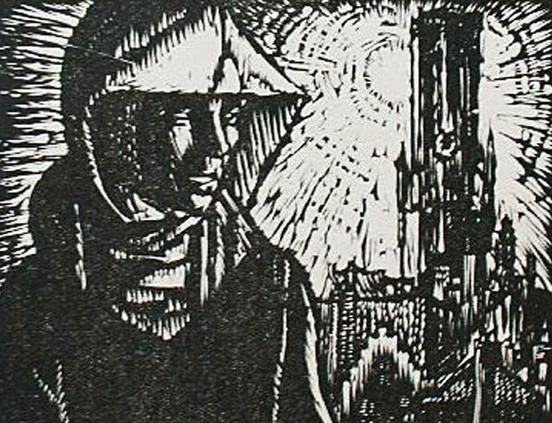

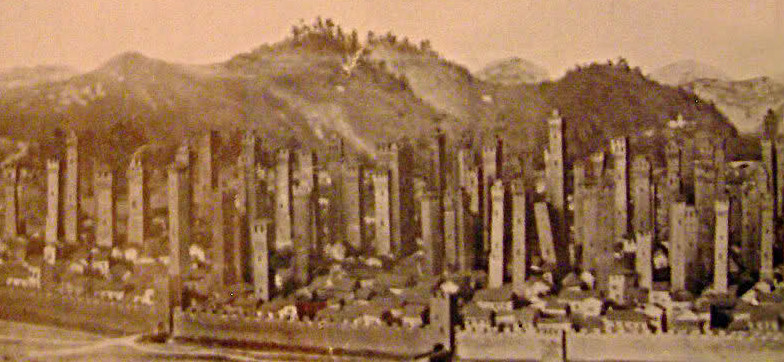

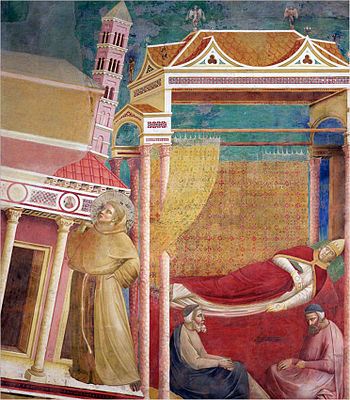
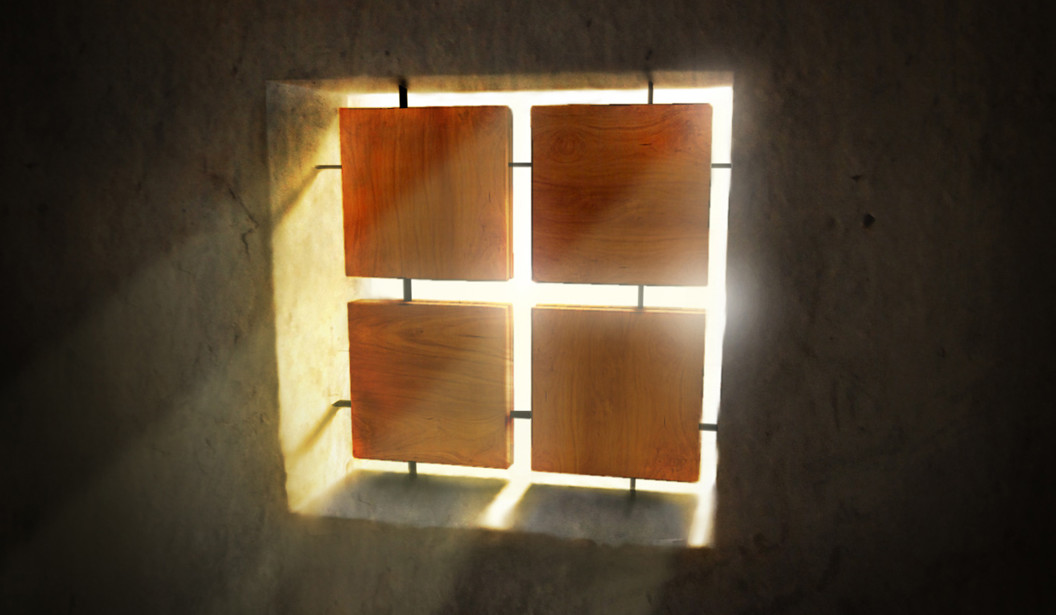
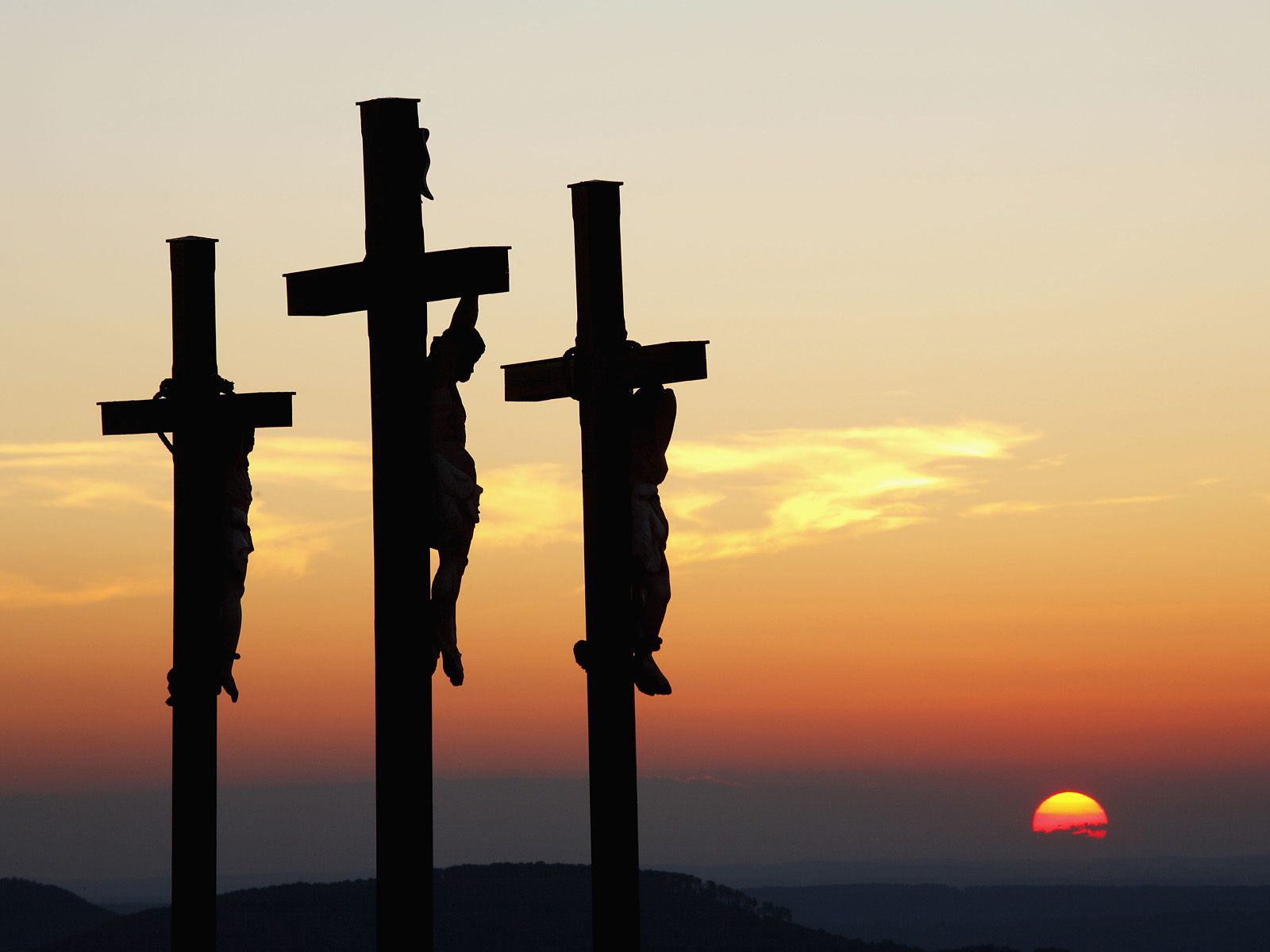
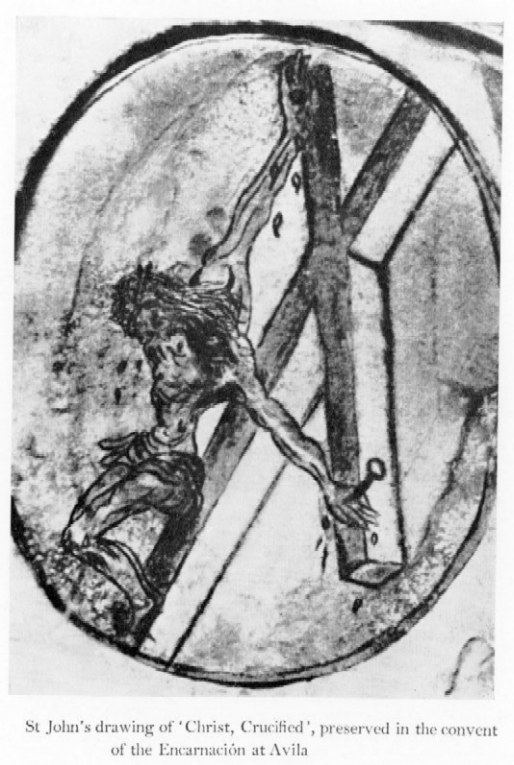
Recent Comments